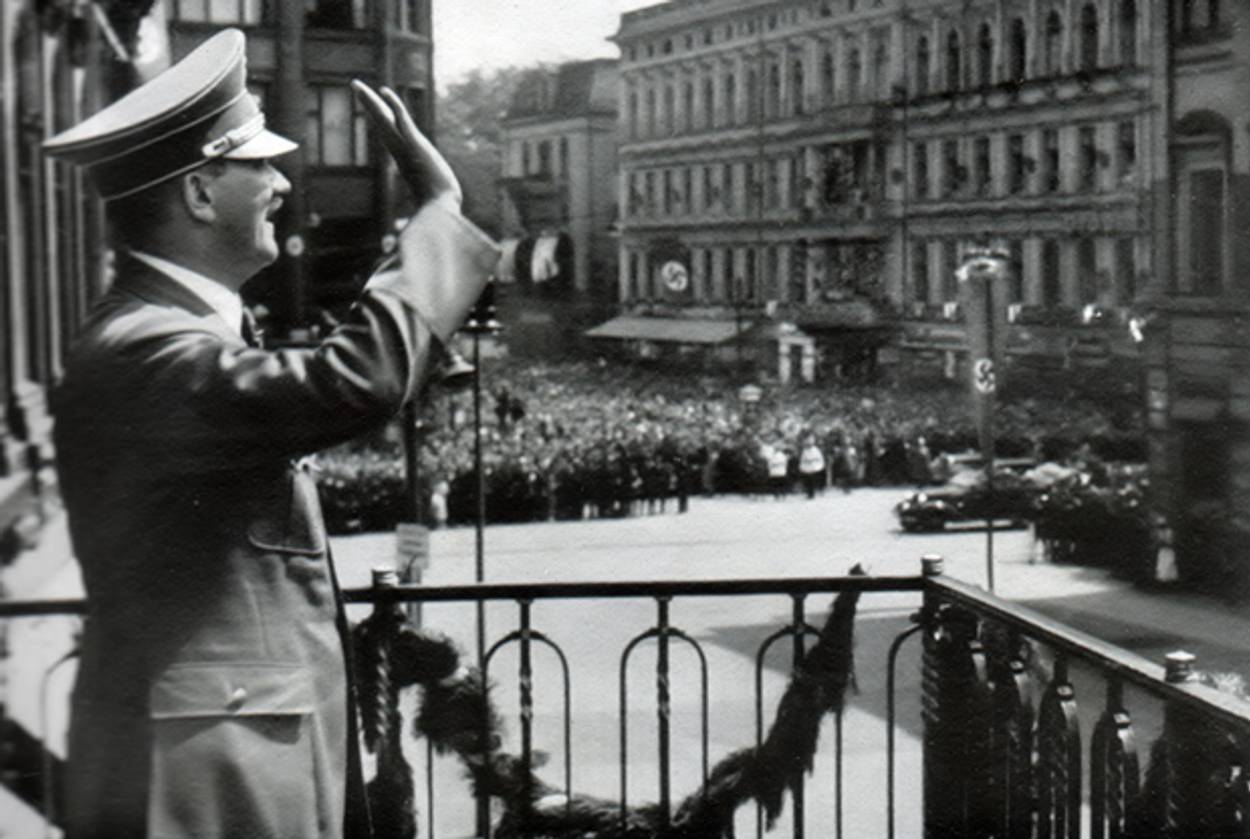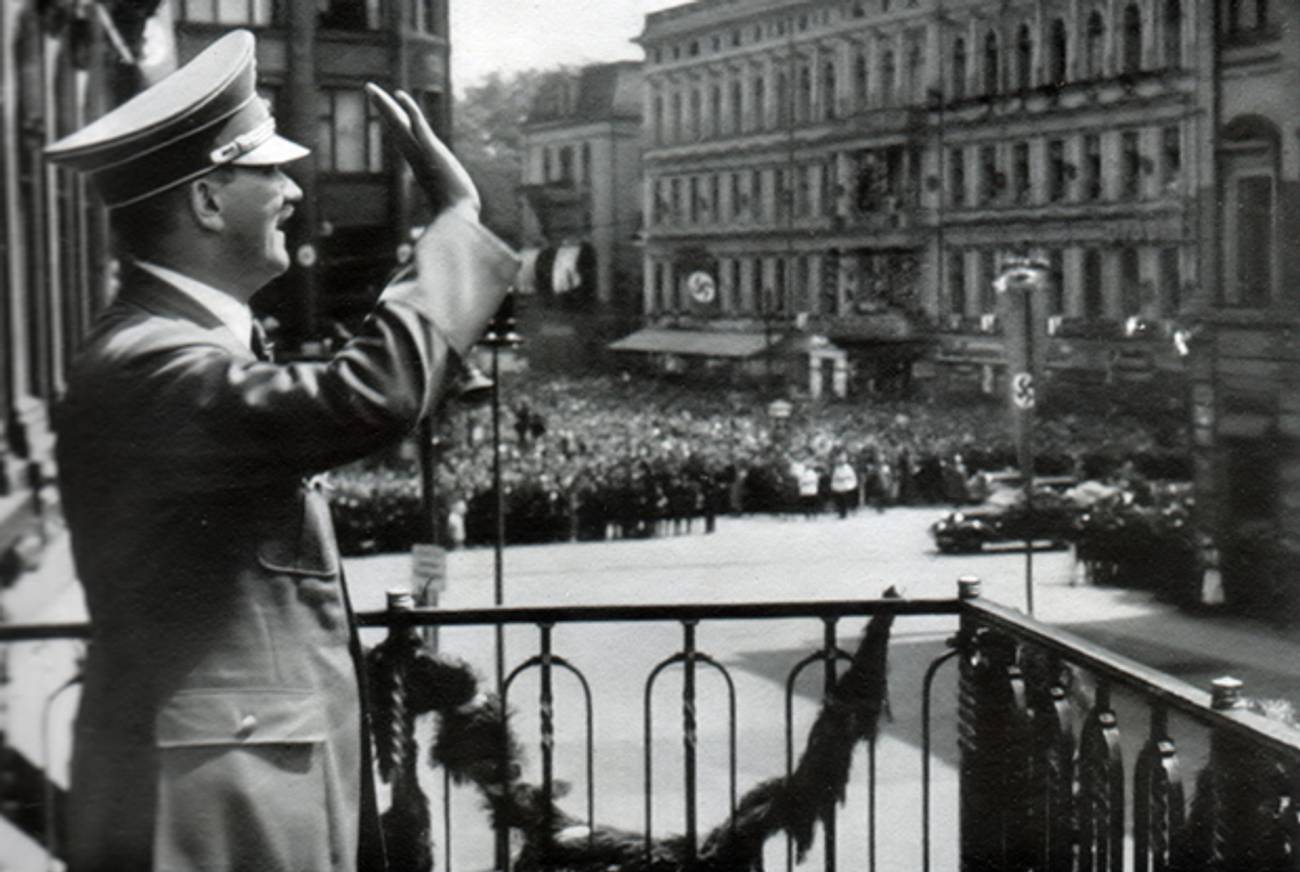The Jewish Poet Who Slept in Hitler’s Bedroom
A 1988 family trip to Poland offered Jerome Rothenberg rich material for art




At a dinner following a very fine public reading in Syracuse last week, the distinguished poet Jerome Rothenberg told the story of how he once slept in Hitler’s bed—or, at least, in his bedroom.
It happened in 1988, when Rothenberg visited Poland, the country from which his parents emigrated to the United States in 1920. He was accompanied by his wife Diane and their son, who was then 19, and en route from Krakow to Wroclaw the family stopped at Auschwitz. “Our son wouldn’t get out of the car,” Rothenberg told the table.
It was raining when they arrived in Wroclaw, in southwest Poland, and checked in to the Monopol Hotel. Instead of the suite they had reserved, however, the hotel at first could only come up with two separate rooms. Then, finally, the desk clerks said they had found a suite that was free. “An elderly bellhop took our bags and led the way,” Rothenberg recounted. “At the suite he threw open the doors, then he turned to us and said: ‘You know who slept here? Hitler!’”
That wasn’t all: “He added, Hitler had made a speech from the suite’s very balcony,” Rothenberg went on. Indeed, the balcony was specially built to accommodate the speech, made by Hitler in 1938. At the hotel, Rothenberg and his family had paused to confer. “We decided,” he said, “he’s dead, and we’re alive. So that night, so to speak, we slept in Hitler’s bed.”
The story was a perfect coda to Rothenberg’s reading, sponsored by the Syracuse Downtown Writer’s Center and held in a cozy room at the YMCA. Now 82, Rothenberg read from works collected in his latest book, Eye of Witness: A Jerome Rothenberg Reader, a compilation that was published last year and includes poems ranging from the 1950s to the present.
Throughout much of his career, Rothenberg has delved deep into explorations of Jewish identity, Jewish traditions, Jewish roots, Jewish mysticism. Years before setting foot in Poland, he brilliantly conjured an imaginary vision of the country of his immigrant parents in an important collection of poems called Poland/1931, published in 1974.
And in his powerful Holocaust cycle, Khurbn, Rothenberg—born in Brooklyn—visits the town near Treblinka that his parents had left and records conversations he had with local people interspersed with his own reflections on the destruction of local Jews.
“…were there once Jews
here? Yes, they told us, yes they were sure there were, though
there was no one here who could remember…”
In Syracuse, Rothenberg read “The Wedding,” a poem from Poland/1931 that encapsulates the way Poland looms large in Jewish myth and memory—and which I first heard him read when we first met, at a poetry conference in London in the mid-1970s. “my mind/ is dreaming of poland stuffed with poland,” it reads in part. It goes on:
“… o poland o sweet resourceful restless poland
o poland of the saints unbuttoned poland repeating endlessly the triple names of mary
poland poland poland poland poland ….
Ruth Ellen Gruber writes frequently about Jewish cultural and heritage issues and coordinates the web site Jewish Heritage Europe. Her Twitter feed is @ruthellengruber.